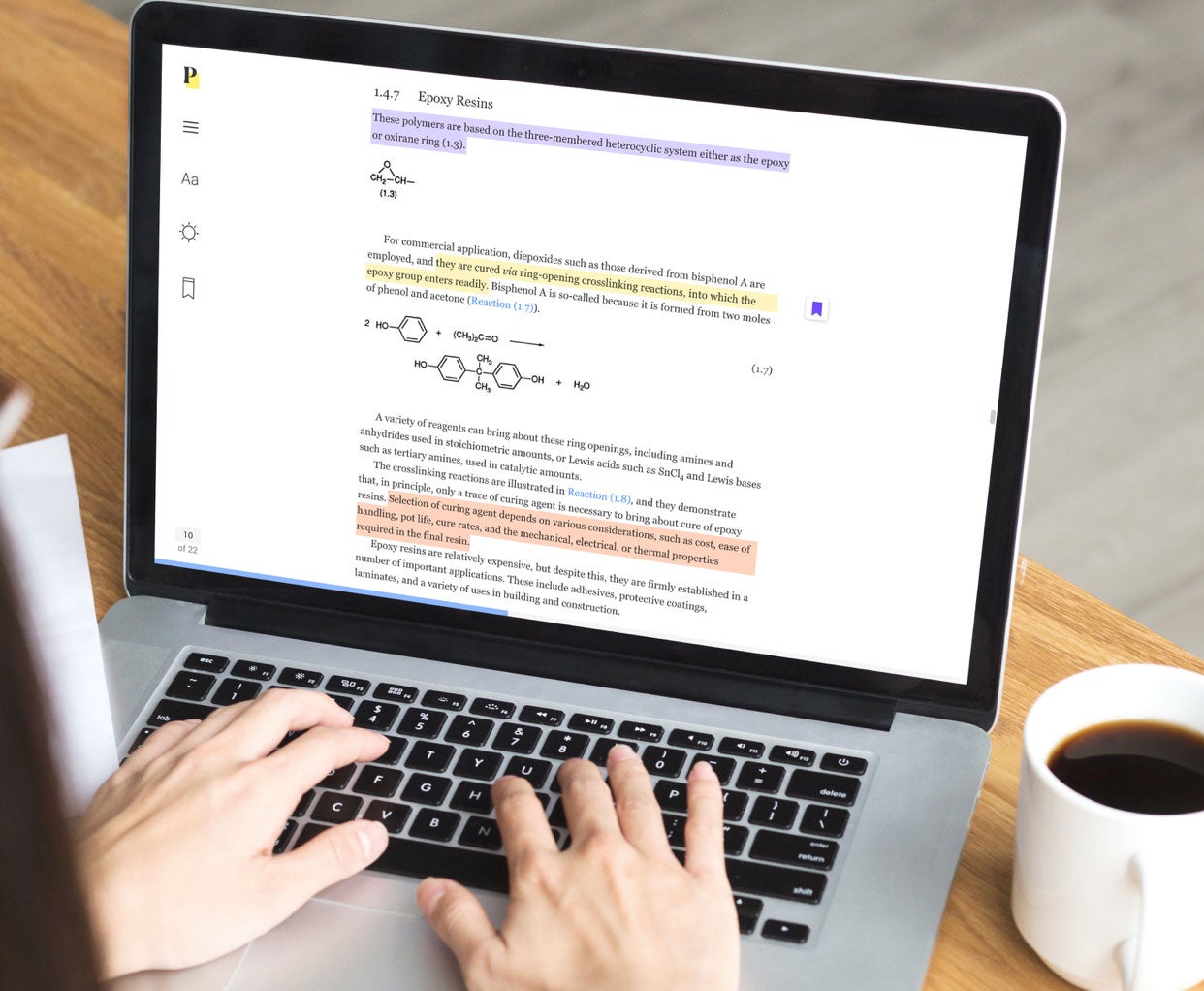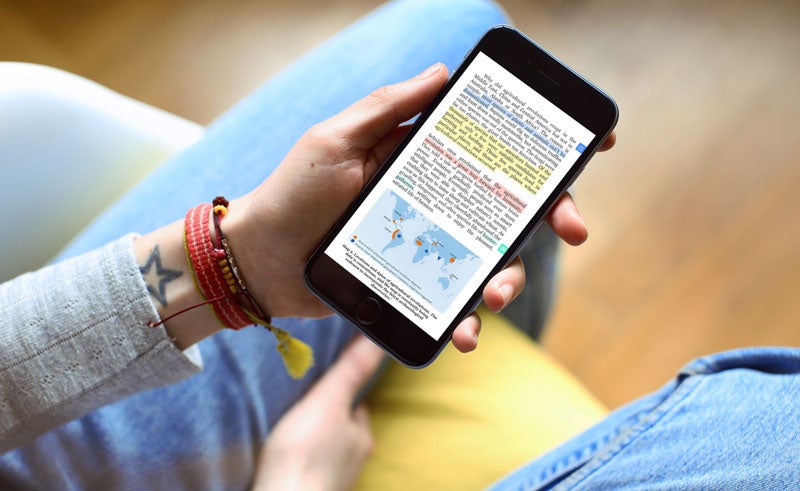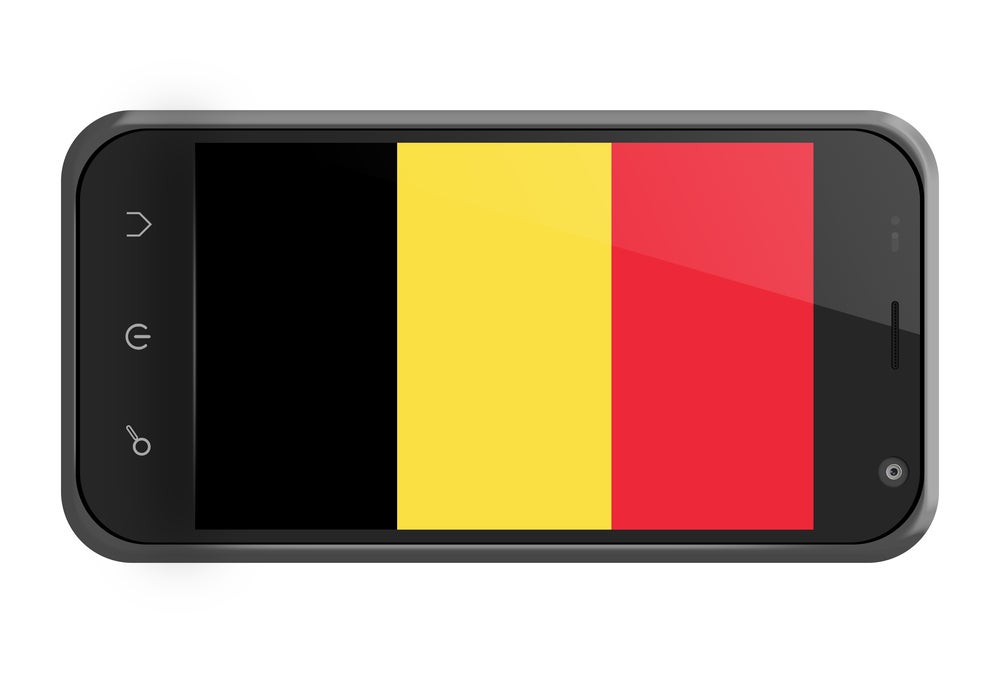
Perlego is novel e-reader technology available through a subscription app for student and business users who would otherwise be paying eye-watering sums for books they may only read once. But it’s not just a Spotify for textbooks. As Perlego VP content acquisition and strategy Matthew Jones explains, it could improve access to education and even offer a solution to e-book piracy.
Perlego was founded by CEO Gauthier van Malderen and CTO Mathew Davis shortly after graduating from university, where the pair witnessed students being required to buy textbooks that cost up to three figures but from which they may only have used a chapter or two.
“It didn’t really make sense and we realised this could be done more efficiently and more affordably. We’re really getting to the point in higher education where students are forgoing access and are being priced out of the market,” Jones says. “There’s a huge opportunity to improve learning outcomes simply by making the content more accessible in the first place.”
According to Jones, publishers inflate the prices of specialist books to make up for the limited number sold, so Perlego set out to find a better way to deliver that content to people who need it the most.
“The first thing that became apparent was that we were going to have to build this e-reader tech from scratch,” Jones says. “We realised from day one that this would have a few issues, one of those being security because you have a huge amount of content of great value in one place, so that was a core focus from the start.”
The problem with e-books
However, Davis and van Malderen found that e-books didn’t have the traction among students they were expecting, despite their potential customers being digital natives who had grown up with technology. They discovered e-books weren’t popular because the functionality that was on offer through existing platforms was poor.
How well do you really know your competitors?
Access the most comprehensive Company Profiles on the market, powered by GlobalData. Save hours of research. Gain competitive edge.

Thank you!
Your download email will arrive shortly
Not ready to buy yet? Download a free sample
We are confident about the unique quality of our Company Profiles. However, we want you to make the most beneficial decision for your business, so we offer a free sample that you can download by submitting the below form
By GlobalData“We wanted to build an e-reader that was above and beyond what was available and, crucially, updated the print reading experience,” says Jones.
In the past, the industry had focused too strongly on scanning in and digitising content then presenting it to the user as a digital version of the print book. Perlego receives the same e-book files or PDFs from the publishers but adds layers that can help students learn more efficiently. This includes collaborative functionality where students can share notes about the text and interact.
“One of the most-used features on Perlego is one-click citation to insert the full Harvard Referencing with the perfect citation, making sure it can be copied and pasted straight into an essay,” says Jones.
Jones says the biggest challenge was getting initial buy-in from publishers. Three years in, Perlego has nearly 300,000 titles and can demonstrate to potential partners results from publishers who trusted the company with their and have been able to realise hidden value from their portfolios. Jones also claims that Perlego’s model helps fight e-book piracy
“The huge lack of affordability and convenience in the industry in the way students get access to this content means people are finding other ways to access it,” he says. “Traditionally, students would read a book in the library or buy it second hand. But increasingly, the content is readily available online. As soon as you share that e-book, you relinquish control of it to people that are motivated to share it and, if we’re honest, are often disgruntled by the amount they had to pay for it.
“It is an awful user experience trying to get a pirated document; it’s usually been photocopied or scanned in and got doodles over it. You can’t highlight the code, you can’t search definitions, obviously you can’t cite directly from it.”
 The subscription model and access to education
The subscription model and access to education
Jones says that customers for Perlego are au fait with the concept of paying a small monthly fee for access to the content they want when they want it, as they would with TV, film and music, so they expect it in their studies as well.
“They don’t want to wait in a queue in a library to reserve a book that will come in in four days’ time perhaps after they need it, he says. “An e-book is much more suited to an access model than an ownership model and we’re trying to do that in a pro-active way. In the same way that Spotify have managed to drastically reduce the piracy of music, we can, by offering an affordable and convenient alternative, bring back the users who have turned to piracy.”
But Jones believes Perlego could improve access to education in a multifaceted way.
“Accessibility in my mind comes in in terms of the affordability from the financial side of it and making things available in a way that people can use it,” he says. “These days the affordability access is pretty widely publicised and that is what we’re more known for. £12 a month – less if you pay annually – is vastly less than the amount students spend on textbooks each year; about a third of that.
“Creating that affordability is a huge aspect towards bringing this content to more people, making it accessible to a wider group of people. There’s a lot of evidence around at the moment that students simply do without because they can’t afford the content, and that’s a crying shame.”
Perlego is also addressing accessibility for people with particular learning difficulties.
“Most notably, the work we’ve done so far has to do with dyslexia,” he says. “We have colour filters and a lot of things that can be done with the fonts to better suit individual learners. It’s definitely only the first step towards a solution, but it’s a positive one and one we want to improve.”
Read more: Taleemabad: The app spreading education across Pakistan


 The subscription model and access to education
The subscription model and access to education


